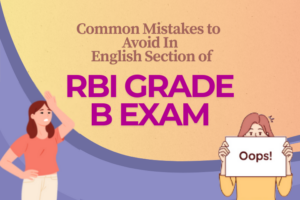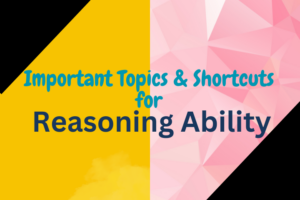The significance of International Mother Language Day, which falls on February 21, each year lies in its attempt to strike a final balance. On the other hand, the event, which has the seal of approval of the United Nations, is supposed to honor the mother tongue. It also encourages the linguistic diversity-the practice of speaking more than one language. It is not uncommon to discuss the threat to, and the death of, languages by the media after a report shows that in our country with 22 scheduled languages and 100 Non-scheduled ones, more than 40 languages and local dialects, with less than 10,000 speakers, are headed towards extinction.
It has been estimated that globally, over 3,000 languages are expected to die in the course of the next decade or so. Oral languages feature (1) prominently in this list of endangered tongues. Interestingly, the death of a language occurs not just with a (2) precipitous decline in the number of speakers. Stipulated legislation can play a role too. For Instance, in a country like India rich in its oral traditions, the govt came up with the idea of defining languages on the basis of the existence of a script. This led to the (3) waning and even (4) effacement of specific dialects-such as the ones used by (5) indigenous people- whose survival depends on oral transmission. The subcontinent has a long history of political movements concerning language. The series of agitations in Tamil Nadu against the official status of Hindi is a classic example. The anger and (6) dissent, were a testimony to the unbreakable link among language, culture and identity. In India, where states- new and old-have been created on the basis of the dominant linguistic identity, (7) subterranean tensions concerning local dialects continue.
It would be tempting to morally denounce this (8) stratification that uses language as the medium of communicating prejudice. But what makes language- the (9) vernacular or the lingua franca( a language that is adopted as a common language between speakers whose native languages are different)- beautiful and complicated is the layered nature of its resonance. Multilingual societies are often feted for their commitment to the idea of pluralism. Today, the direction of global politics is (10) grim. In truth multilingualism is a space that simmers with the tension brought about by competing languages. It should be answered that if a multilingual society is indeed a nursery that is benevolent equally to languages, why is it that of India’s 22 scheduled languages, no more than two are spoken by the adivasis who make up over 8% of the country’s population?
1. PROMINENTLY (adverb)=विशिष्टता
Meaning: with an important role; to a large extent.
Synonyms: boldly, brilliantly, catchy, conspicuously, eye-catching, flamboyantly, noticeably, remarkably, splashy, strikingly.
Antonyms: inconspicuously, unemphatic, unflamboyantly, unnoticeably, unobtrusively, unremarkably.
2. PRECIPITOUS (adjective)=तेज़
Meaning: dangerously high or steep.
Synonyms: abrupt, bold, sheer, steep, plumb, craggy, slanted, sloped, tilted.
Antonyms: gentle, gradual, moderate, soft, flat, flush, horizontal, level.
3. WANING (verb)=कम होना
Meaning: (of a state or feeling) decrease in vigor or extent; become weaker.
Synonyms: abate, de-escalate, decline, decrease, diminish, dwindle, ease, ebb, lessen, lower, moderate, pall, ratchet (down), recede, relent.
Antonyms: appear, emerge, show up, blow up, distend, elongate, lengthen, enlarge, escalate, expand, intensify, soar.
4. Efface (noun)=उन्मूलन
Meaning: the act or process of effacing or eliminating something.
Synonyms: wipe out, scratch out, rub out, blot out, fade, expunge, eliminate, delete, cancel, obliterate.
Antonyms: create, improve, construct, build.
5. INDIGENEOUS (adjective)=स्वदेशी
Meaning: originating or occurring naturally in a particular place; native.
Synonyms: aboriginal, born, domestic, endemic, native, local, regional, original.
Antonyms: alien, exotic, foreign, strange, expatriate, immigrant.
6. DISSENT (noun)=असहमति
Meaning: the holding or expression of opinions at variance with those commonly or officially held.
Synonyms: conflict, discord, discordance, disharmony, dissidence, dissonance, disunion, division, schism, strife, variance.
Antonyms: concurrence, cooperation, accord, agreement, concord, concordance, harmony.
7. SUBTERRANEAN (adjective) =भूमिगत
Meaning: secret; concealed.
Synonyms: belowground, subsurface, covert, subversive, sunken, private.
Antonyms: aboveground, surface, open, palpable.
8. STRATIFICATION (noun)=स्तर-विन्यास
Meaning: the arrangement or classification of something into different groups.
Synonyms: distinguish, differentiate, separate, severalize.
Antonyms: move, displace, tussle, tousle, muss, move.
9. VERNACULAR (adjective)=मातृभाषा
Meaning: used in or suitable for speech and not formal writing.
Synonyms: colloquial, conversational, informal, nonliterary, unliterary, jargon, cant, slang, argot, patois, local lingo.
Antonyms: standard, undialectical, genteel, grammatical, proper, formal, learned, literary.
10. GRIM (adjective)=भयंकर
Meanings: very serious or gloomy.
Synonyms: cheerless, dark, glum, joyless, melancholic, morose, sulky, sullen, surly, humorless, melancholy.
Antonyms: benign, benignant, gentle, mild, tender, merry, mirthful, flighty, frivolous, giddy, harebrained, light-headed.
How to prepare for English language section? | SBI Clerk 2018
How to Prepare for Quantitative Aptitude for Upcoming Bank Exams?





 IBPS Final Result 2025 Coming Out Tomorr...
IBPS Final Result 2025 Coming Out Tomorr...
 Simple Tips to Avoid Common Mistakes In ...
Simple Tips to Avoid Common Mistakes In ...
 Important Topics & Shortcuts for IDB...
Important Topics & Shortcuts for IDB...





